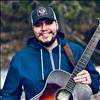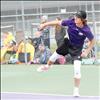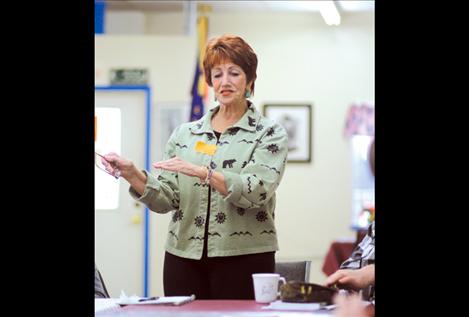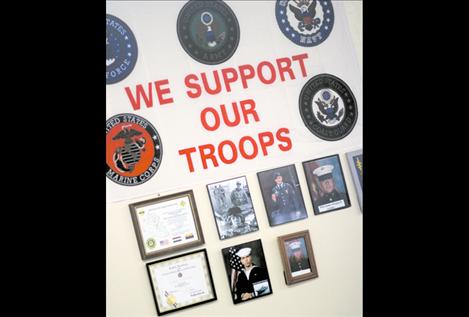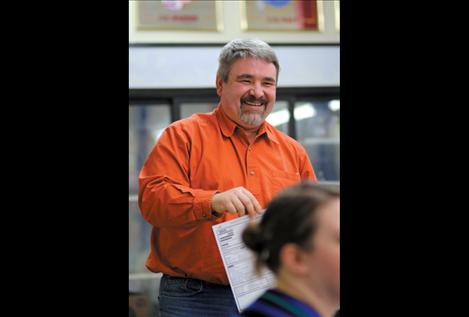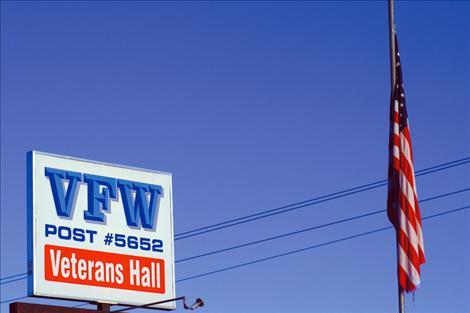Veterans, families open up about PTSD
Hey savvy news reader! Thanks for choosing local.
You are now reading
1 of 3 free articles.
RONAN — Post-traumatic stress disorder is a daily reality for many citizens, combat veterans and civilians alike. While most efforts to treat the disorder focus on combat veterans and their symptoms, few organizations focus on the effect PTSD has on veterans’ family members, friends and significant others.
Last week in Ronan, a group of PTSD sufferers from many walks of life, their close family members, VA representatives and counselors met in Ronan’s VFW hall to break the silence. Event organizer, veteran and VA representative Bert Todd titled the event, “The Hidden Wounds of PTSD — A night visiting the relationship of families and PTSD challenges,” and by all accounts, it was a resounding success.
According to the Mayo Clinic, PTSD develops after an individual sees, experiences or learns about an event that causes intense fear, helplessness or horror. Symptoms include flashbacks, upsetting dreams, emotional numbness, memory problems, trouble concentrating, irritability or anger, self-destructive behavior, being easily startled or frightened and hallucinations. According to a report released in September by the U.S. Department of Veterans Affairs, the physician-diagnosed post-traumatic stress disorder rate for veterans of the Iraq and Afghanistan wars is approaching 30 percent — comparable to the Vietnam-era PTSD rate — and the VA office takes in almost 4,000 new cases each month.
And while PTSD has been a part of war since the beginning of time, the first PTSD sufferer to break the silence was not a military veteran.
Tammy Hirsch, a Polson resident and vice-president of the Healing Hearts in Hope Veterans Retreat Center in Granite Falls, Wash., said the evening turned out to be a nice round-table discussion rather than a regimented and routine question-answer session.
“My goal was just to reach some people,” Hirsch said after the event. “And, yes, I do think I attained that goal. ... People don’t realize that when you are living with PTSD, it’s affecting everyone around you ... whether it’s children or parents. I think it’s important for us to recognize that.”
Hirsch started the evening with an anecdote regarding her personal struggle with PTSD.
A native of Columbia Falls, Hirsch’s father owned and operated a sporting goods store with her three brothers. She said she grew up hunting, fishing, tying flies and “generally acting like a guy.”
The experience and knowledge of the wilderness she gained during these years would save her life.
Hirsch attended a private Christian college in Minneapolis, Minn., and decided to embark upon a mission trip to Alaska between her sophomore and junior year.
“Long story short, I ended up in a tiny Bible camp in Soldotna, Alaska. I spent the summer cooking for kids,” she said.
Her first day on the job, the camp’s oven blew up and burned her face. Shortly after, a 10-year-old camper came through with viral meningitis, and Hirsch was the first to contract it. She spent two weeks of the summer with a 103-degree fever and said she still doesn’t remember a thing from those two weeks.
“The camp nurse, who I’d gotten to know very well over the summer, had driven up from Chicago, so we decided to drive back down to the Lower 48 together,” Hirsch said.
Hirsch was asleep in the passenger seat when the accident occurred at about 4 p.m. Sept. 1, 1984.
While trying to change tape decks, the camp nurse lost concentration and drove the pair off of a 250-foot mountain cliff and into a lake.
“(Before) that, I’d worked for the forest service; my dad taught me how to survive in the woods, and most of us Montanans know what to do in the woods. All of the things I learned came into play that night,” Hirsch remembered.
Both women swam out of the rapidly sinking car, made it back to shore, climbed back up the 250-foot mountain and flagged down a passing car about an hour after the accident. Hirsch would spend the next year and a half in Alaska undergoing medical care and therapy for injuries sustained during the fall.
“The reason I tell you this is because I have PTSD,” Hirsch said at the meeting. “It’s not combat-related, although I have been shot at, and I have to live with it. I just got to experience it last night in that wonderful little squall we had ... By the time I made it out to Hot Springs, my hands were shaking.”
Hirsch said she married a Vietnam War veteran some time later and did not know he had PTSD until six months after they were married.
“Twenty-five years later and we’re still, both of us, dealing with PTSD,” she said.
Ten years ago, Hirsch was working as a lab tech in a hospital in Everett, Wash., when she met Teresa Flying Eagle Baird — a quadriplegic with multiple sclerosis. Baird’s husband, like Hirsch’s, had PTSD. He’d committed suicide and left Baird in the wheelchair to raise six children.
Undeterred, Baird started the Healing Hearts in Hope veterans retreat center, donating her ranch so veterans could use it as a free camping facility. The center promotes veteran-to-veteran counseling in a fireside-chat setting.
“I’m here to tell you that it worked for my husband,” Hirsch said. “I’m here to tell you this nation is in a crisis. I’m here to tell you that I’m spending a lot of time, a lot of money and a lot of heartache to make sure that we are developing programs that are helping PTSD. The government can’t do it all, and that’s a huge entity for the vets to even try to approach.”
In her closing remarks, Hirsch gave an impassioned plea to the PTSD sufferers and their families at the meeting.
“It’s never too late, and you do count,” she said. “Your voice counts; your phone calls count; and your prayers count. Don’t sit idly on your hands — reach out.”

